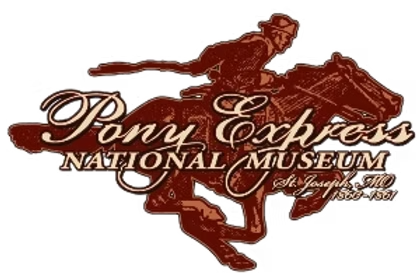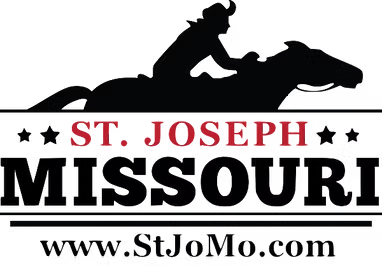Historical Notes
Stories, Claims, and Lesser-Known Truths of the Pony Express
These historical notes explore personal accounts, legends, and documented events connected to the Pony Express. From famous figures and disputed claims to remarkable individual stories, this collection offers deeper context and insight beyond the main timeline, revealing the complexity and humanity behind the legend.
William “Buffalo Bill” Cody claims to have been a rider for the Pony Express around the Julesburg, Colorado area. He probably did more to contribute to the legend of the Pony Express by showcasing it in his Wild West show. According to Alexander Major’s book, “70 Years on the Frontier”, there is hardly any mention of Cody except that he served as a messenger for Majors. However, Cody did help pay for publishing the book and wrote a forward at the beginning of the book.
Don’t miss the Buffalo Bill and the Pony Express Exhibit: William F. Cody, better known as Buffalo Bill, lived part of the Pony Express legend before he became famous for his Wild West shows. The Pony Express National Museum is now proud to highlight this famous rider in an exhibit that includes many relics from Buffalo Bill’s adventurous life.
This year, stop in and read Buffalo Bill’s journals, listen to him speak, and see him in action in old film footage. While he might not be captured in Pony Express photos, our museum will display photos of his 1914 visit to St. Joseph. The Buffalo Bill Museum in Golden, Co., has loaned much of the historic items and memorabilia to the Pony Express museum until December 2016.
Billy Fisher was a rider from the Salt Lake City area. In the winter of 1861, while making his run, Fisher encountered a blinding blizzard. Fisher was tired from the effects of the storm. At one point, he dismounted and sat down by a tree. He started to fall asleep. Then, something jumped on his legs and started licking him in the face. Fisher was awakened and found a rabbit staring him in the face. The moment startled Fisher and the rabbit scampered away. Fisher said if the rabbit hadn’t did what it did, he may have never awakened and might have froze to death in his sleep. He called it an act of providence. Fisher’s great-great-grandson William Fisher is also an adventurer of a sort. He is an astronaut and flew in the space shuttle.
Bronco Charlie Miller claims to have been the youngest rider for the Pony Express. One day in Sacramento, a rider was needed. Miller says his father told the stationkeeper his 11-year old son knows the route and helped him on the horse ushering him off. Miller said he was then hired as a rider. Miller, along with Pony Bob Haslam and other riders, would go on to work in Buffalo Bill’s Wild West show. He claims to be the last Pony Express rider before it shut down and did outlive all other riders dying at the age of 105 in 1955.
James Butler “Wild Bill” Hickok never worked as a rider and only worked as a stocktender. Reason being, he was older and heavier than the other riders. The incident at Rock creek station was the beginning of a career for Hickok as a gunfighter, lawman and gambler. He was good friends with Buffalo Bill and did perform in his Wild West Show for a brief period. Hickok would later move to Deadwood, South Dakota where he would be murdered while playing cards in a saloon.
Benjamin F. Ficklin quit his job with Russell, Majors and Waddell as general superintendent for the Pony Express three months after it started and worked for a telegraph company for a short period. He joined the Confederate army and became an officer and was a hero. Plagued by asthma, Ficklin took a desk job and was sent to England to buy war materials for the Confederacy. A month before General Robert E. Lee surrendered at Appomattox, the Confederacy sent Ficklin to Washington to see President Lincoln. While he waited for an audience, Lincoln was assassinated. Ficklin was arrested and was thought to be a conspirator and sent to jail for two months. He was finally cleared of complicity in the assassination of Lincoln. Four years after starting a mail and stage service in Texas, Ficklin returned to Washington on business. He was having dinner when a fish bone became lodged in his throat. While a doctor was trying to remove it, the forceps slipped and cut an artery. On March 10, 1871, Ficklin who was involved in the thick of things from the War with Mexico, overland freight and stage travel, the Pony Express, the telegraph, the Civil War, and Lincoln’s assassination – bled to death.
Russell, Majors and Waddell’s firm fell apart eventually after the end of the Pony Express. In March 1862, stagecoach king Ben Holladay took over the company. Waddell returned home to Lexington, Missouri. Broke and terribly in debt, Waddell sold his home to his son for one dollar and continued to live there. Waddell was badly affected by one of his son’s death during the Civil War. William B. Waddell never worked in business again and died on April 1, 1872. The 48-year-old Russell went to New York and failed as a stockbroker because of the bond scandal. No one would trust him. Russell filed bankruptcy on April 3rd, 1865. Exactly five years since the first rider left St. Joseph. His assets were sold off to pay creditors. He returned to Missouri by way of family because of failing health. William H. Russell died at the age of 60 on September 10, 1872. Alexander Majors faired a little better than his other partners. But, not by much. In 1865, living in Kansas City, Majors sold what assets he had left and moved to Colorado. 30-years later, his old wagonmaster and Pony Express rider, William “Buffalo Bill” Cody came for a visit. He found Majors old, in poor health and penniless. Cody helped Majors publish his book, “70 Years on the Frontier” and wrote a foreword in it. Cody also put Majors in his Wild West Show and allowed him to stay at his Scouts’ Rest Ranch in Nebraska. Majors returned to Kansas City and died on January 13, 1900.
Alexander Majors was a religious and temperate man and required all his employees to take an oath and expected them to abide by it. Specifically, the oath below was written for employees of the Pony Express.
Pony Express Oath: “I,………..,do hereby swear, before the Great and Living God, that during my engagement, and while an employee of Russell, Majors and Waddell, I will, under no circumstances, use profane language, that I will drink no intoxicating liquors, that I will not quarrel or fight with any other employee of the firm, and that in every respect I will conduct myself honestly, be faithful to my duties, and so direct all my acts as to win the confidence of my employers, so help me God.”
All Photos Courtesy of St. Joseph Museums, Inc., Pony Express Museum, National Archives, U.S. Library of Congress, St. Joseph Convention and Visitors Bureau.


